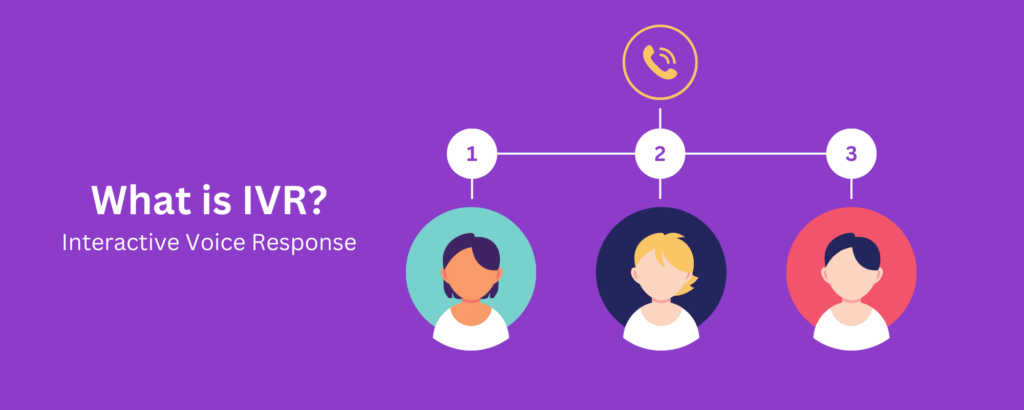
If you’ve ever called a large organization, chances are you’ve encountered Interactive Voice Response (IVR). This technology, integral to most VoIP provider packages, enables callers to interact with a company’s computer system using their voice.
Understanding what IVR is, its advantages, and whether it aligns with your business needs is crucial. IVR allows customers to engage with a business via phone without the immediate need for a live human operator. This could include scenarios like inputting your birthday when calling a doctor’s office or selecting options when contacting a bank.
As the initial point of contact for callers, IVR acts as a gatekeeper, directing them to the appropriate department. It begins with broad questions, like whether the caller is new or returning, and further refines the path based on their responses. This segmentation ensures tailored assistance, allowing smaller dedicated teams to handle specific call types and provides operators with initial caller context.
Intelligent Call Routing:
Directs calls based on the gathered information, ensuring they reach the most suitable representative.
Self-Service:
Allows customers to address simple issues without human intervention, reducing workload for operators.
24/7 Service:
Basic tasks can be completed outside business hours, enhancing accessibility and convenience.
Integration with Other Software:
Advanced IVR systems integrate with business software like CRM, optimizing customer interactions.
IVR has evolved significantly since its debut in the 1960s, transitioning from basic touch-tone systems to sophisticated platforms. Modern IVR systems understand natural language, utilize speech recognition, and offer personalized responses, serving diverse applications such as customer service and data collection.
Natural Language Processing (NLP):
Enhances understanding of caller queries, improving personalized responses and routing.
Voice Biometrics:
Utilizes unique voice patterns for caller identification, enhancing security.
Cloud-Based IVR: Hosted in the cloud, offering flexibility, scalability, and cost-efficiency.
Conversational IVR:
Combines artificial intelligence with natural language processing, enabling more natural and engaging customer interactions.
IVVR (Interactive Voice and Video Response):
Extends IVR to include video for information provision and live video chats.
IVR finds application in various industries, from banks extending telephone banking to pharmaceutical companies gathering clinical trial data. While it is prevalent in call centers, it may be less suitable for more personalized experiences, such as in hotels or law firms.
The suitability of IVR depends on factors such as call volume and implementation design. A well-implemented IVR can enhance customer experience and satisfaction, while a poorly designed system may lead to frustration. It’s essential to assess whether the technology aligns with your business’s specific needs and customer expectations.